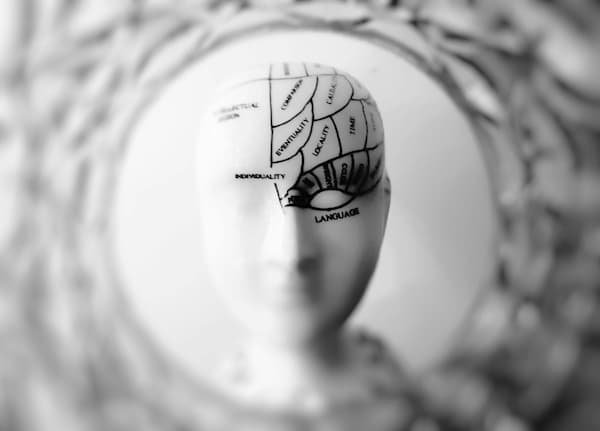
 Katie Wood
Freediver, Writer, Explorer
Katie Wood
Freediver, Writer, Explorer

 Katie Wood
Freediver, Writer, Explorer
Katie Wood
Freediver, Writer, Explorer
Freediving is a sport that blends physical prowess with mental tranquility, offering a unique connection with the underwater world. However, the sport's inherent risks can sometimes lead to traumatic experiences, such as blackouts during competitions or loss of motor control (LMC) during training or spearfishing. These events can leave deep psychological scars, impacting not only performance but also one's overall well-being. In this comprehensive guide, we will explore strategies to overcome psychological trauma, drawing on scientific research and therapeutic practices to help you reclaim your passion.
Psychological trauma is an emotional response to a distressing event that overwhelms an individual's ability to cope. Trauma can stem from various experiences, including accidents, abuse, natural disasters, or witnessing violence. Regardless of the cause, trauma can have profound effects on mental health, leading to symptoms such as anxiety, depression, and post-traumatic stress disorder (PTSD).
Trauma affects the brain and body in profound ways. The amygdala, the brain's fear center, becomes hyperactive, leading to heightened anxiety and vigilance. Meanwhile, the prefrontal cortex, responsible for rational thought and decision-making, can become less active, making it difficult to manage stress and emotions (Van der Kolk, 2014). The body also responds to trauma through the autonomic nervous system, which regulates involuntary bodily functions. A traumatic event can trigger the "fight-or-flight" response, causing increased heart rate, rapid breathing, and muscle tension. Over time, if not addressed, these responses can lead to chronic stress and health issues (Porges, 2011).

Acknowledging and Accepting Your Feelings - The first step in overcoming trauma is to acknowledge and accept your feelings. Suppressing emotions can exacerbate trauma and delay healing. Recognize that it's normal to feel fear, anxiety, or sadness after a traumatic event.
Seeking Professional Help - Professional therapy is crucial in addressing trauma. Cognitive Behavioral Therapy (CBT) and Eye Movement Desensitization and Reprocessing (EMDR) are evidence-based treatments that have shown efficacy in trauma recovery (Shapiro, 2017). Therapists trained in these methods can help you process traumatic memories and develop coping strategies.
Practicing Mindfulness and Relaxation Techniques - Mindfulness practices, such as meditation and deep breathing exercises, can help calm the mind and reduce anxiety. Research shows that mindfulness can reduce symptoms of post-traumatic stress disorder (PTSD) and improve emotional regulation (Hölzel et al., 2011). Incorporating mindfulness into your daily routine can enhance your resilience and stress management skills.
Gradual Exposure and Desensitization - Gradual exposure to the traumatic context in a controlled and safe manner can help desensitize your response to it. This method, known as exposure therapy, is effective in reducing fear and avoidance behaviors (Foa et al., 2007).
Building a Support System - Surrounding yourself with supportive friends, family, and peers can provide emotional comfort and encouragement. Sharing your experiences and feelings with others who understand can foster a sense of community and reduce feelings of isolation.
Maintaining Physical Health - Physical health plays a vital role in mental well-being. Regular exercise, a balanced diet, and adequate sleep can improve mood and energy levels. Activities like yoga, which combines physical movement with mindfulness, can be particularly beneficial for trauma recovery (Van der Kolk, 2014).
Setting Realistic Goals - Setting realistic and achievable goals in your life can help rebuild confidence and provide a sense of accomplishment. Start with small, manageable steps and gradually increase the difficulty as you feel more comfortable and confident.
Educating Yourself - Understanding the nature of trauma and its effects can empower you to take control of your healing process. Reading books, attending workshops, and participating in support groups can provide valuable insights and coping strategies.

Self-compassion involves treating yourself with kindness and understanding during times of difficulty. It is particularly important in trauma recovery, as it encourages a positive and supportive inner dialogue. Research indicates that self-compassion can reduce trauma-related symptoms and promote psychological well-being (Neff, 2003).
Mindful Self-Awareness - Recognize your suffering without judgment or criticism.
Self-Kindness - Treat yourself with the same kindness and care you would offer a friend in a similar situation.
Common Humanity - Acknowledge that suffering is a part of the human experience and that you are not alone in your struggles.
Recovery from trauma is a gradual process that requires patience and persistence. It's important to recognize that setbacks are a natural part of healing and to celebrate small victories along the way. Consistent effort and a positive attitude can significantly enhance your resilience and recovery.
Psychological trauma can have profound effects on mental health and well-being, but it is possible to overcome. By acknowledging your feelings, seeking professional help, practicing mindfulness, and building a strong support system, you can navigate the path to recovery. Remember, healing is a journey, and with patience and persistence, you can emerge stronger and more resilient.
References
Foa, E. B., Hembree, E. A., & Rothbaum, B. O. (2007). Prolonged Exposure Therapy for PTSD: Emotional Processing of Traumatic Experiences. Oxford University Press.
Hölzel, B. K., et al. (2011). How Does Mindfulness Meditation Work? Proposing Mechanisms of Action From a Conceptual and Neural Perspective. Perspectives on Psychological Science, 6(6), 537-559.
Neff, K. D. (2003). Self-compassion: An Alternative Conceptualization of a Healthy Attitude Toward Oneself. Self and Identity, 2(2), 85-101.
Porges, S. W. (2011). The Polyvagal Theory: Neurophysiological Foundations of Emotions, Attachment, Communication, and Self-regulation. W. W. Norton & Company.
Shapiro, F. (2017). Eye Movement Desensitization and Reprocessing (EMDR) Therapy: Basic Principles, Protocols, and Procedures. Guilford Press.
Van der Kolk, B. A. (2014). The Body Keeps the Score: Brain, Mind, and Body in the Healing of Trauma. Viking.